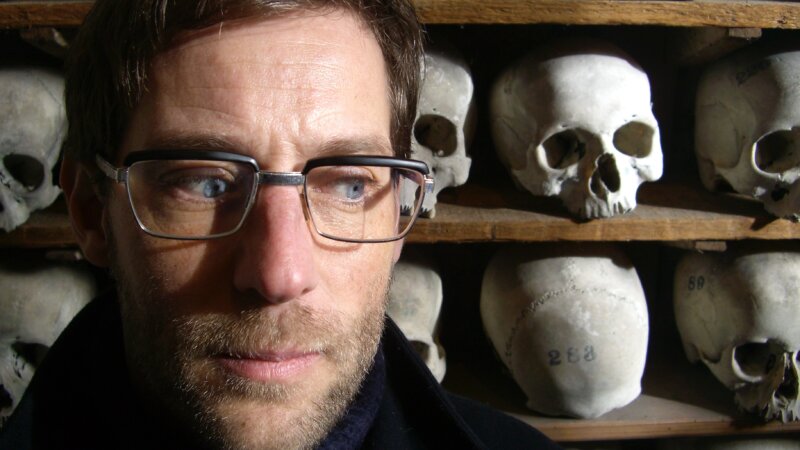Wikileaks: One in the eye for lies
I live in Shanghai and had for some time since leaving England secretly hoped I'd stumble across a news story of such global proportions. China is bereft of free press, you see, and I wanted to witness the contrast with English media. My experience was similar, apart from the absence of TV bombardment, mainly because if you want news, read English and have an internet connection, you can find it. But then I wondered; what if I only read Chinese?
The following week I was due to help colleagues with their English. I like to have a discussion topic for these lessons. As a slightly subversive (as China goes) experiment I began by holding up a picture of Julian Assange. "Do you know who this is?" I asked. In a room full of people, several of whom had postgraduate degrees from European universities, nobody did. "Have you heard of Wikileaks?" Blank faces. I proceeded to explain and, though the story had dominated global media for the past week, it became evident that this was the first my colleagues had heard of it.
This absence of awareness goes to the nub of the Wikileaks controversy, and the Chinese context lends it a perspective not easily obtained elsewhere. Assange has compelled us to question the validity of state secrecy as a precondition of effective governance, and if an antithesis to Assange's argument is found anywhere, it is in the recent successes of the secretive Communist Party of China (CPC).
Though the practices of the CPC run counter to those Enlightenment values held dear by the liberally inclined, they have produced many unquestionable benefits for the country. The statistics are staggering - over 400 million lifted from poverty since 1980, a decrease by over 40% in the infant mortality rate since 1990, a nigh equivalent decline in maternal mortality and an economy growing at roughly 10% per annum. Could this have been achieved if a culture of accountability prevailed in China, similar to that which prevails in the West? Would greater transparency render more, or less, efficient the architecture of governance in a nation of 1.3 billion? These questions phrased in the mind of the liberal often yield emotive analysis, and Western media betrays this to us regularly with its stock critique of the CPC, but objectively, they are difficult to answer. Yet difficult or not, Assange has forced us to reflect on them, to weigh in the balance the relative merits of secrecy and transparency.
In 2006 Assange wrote a blog post entitled 'The non linear effects of leaks on unjust systems of governance'. It warrants quotation at length:
"The more secretive or unjust an organization is, the more leaks induce fear and paranoia in its leadership and planning coterie. This must result in minimization of efficient internal communications mechanisms (an increase in cognitive "secrecy tax") and consequent system-wide cognitive decline resulting in decreased ability to hold onto power as the environment demands adaptation.
"Hence in a world where leaking is easy, secretive or unjust systems are nonlinearly hit relative to open, just systems. Since unjust systems by their nature induce opponents, and in many places barely have the upper hand, mass leaking leaves them exquisitely vulnerable to those who seek to replace them with more open forms of governance."
This is, as Julian Assange sees it, Wikileaks' raison d'être. It presupposes that secrecy burdens the agility of organisations more than transparency. Perhaps, though, the accountability consequent upon transparency levies its own burden on agility? Moreover, the passage unequivocally characterises secretive systems as unjust and open systems as just, yet it is clearly arguable that governments may justly hold some secrets.
I am to an extent playing devil's advocate here; having written an article in Now Then #18 entitled Democracy Dies Behind Closed Doors, you can probably guess my proclivities. But these questions do warrant thoughtful reflection. The point is, Assange has forced the analysis and that is, quite simply, a brilliant coup.
Whatever the answer to the above questions, one thing is clear; Wikileaks is totemic of an epochal shift in power over the flow of information. As Jeff Jarvis - journalist, professor at City University of New York and founder of Entertainment Weekly - has observed: "It used to be that he or she who held secrets held power...Now he or she who creates transparency holds power."
This brings me to my central contention, and it hangs on the nature and value of privacy; a concept so core to us as individuals that we enshrine it in manifold human rights instruments. Its importance stems from our nature as individual agents who seek to control our identities through the information we reveal to, and withhold from, the outside world. Now, apply that same logic to government and we begin to see that governments control their identities through the use of privacy in the very same way that we do.
Though ostensibly mandated by the people, governments control their identities through revealing and withholding information to and from the people according to their dictate, not ours. In a democracy this gives lie to the notion that we elect those best suited to govern; rather, all too often, we elect those best able to attune the control of their identity so as to resonate with the electorate. Wikileaks and its fast proliferating imitators are ceding this control away from the governing class and towards the people. In an optimistic view, this gives us a fresh opportunity to consider what should and should not be kept from us, taking into account the successes of more secretive organisations like the CPC, and weighing these against our system of values. Ultimately, it allows us to play a larger role in the shaping of our government's identity.
Despite the unanswered questions, luminaries like Assange and heroes like Bradley Manning have invigorated our enfranchisement. As Assange wrote in a 2006 essay entitled Conspiracy as Governance: "We must develop a way of thinking about this structure that is strong enough to carry us through the mire of competing political moralities and into a position of clarity."
(Incidentally, all the transparency in the world can't stop a duplicitous U-turn on manifesto commitments, can it Clegg? You lying scumbag).
)




